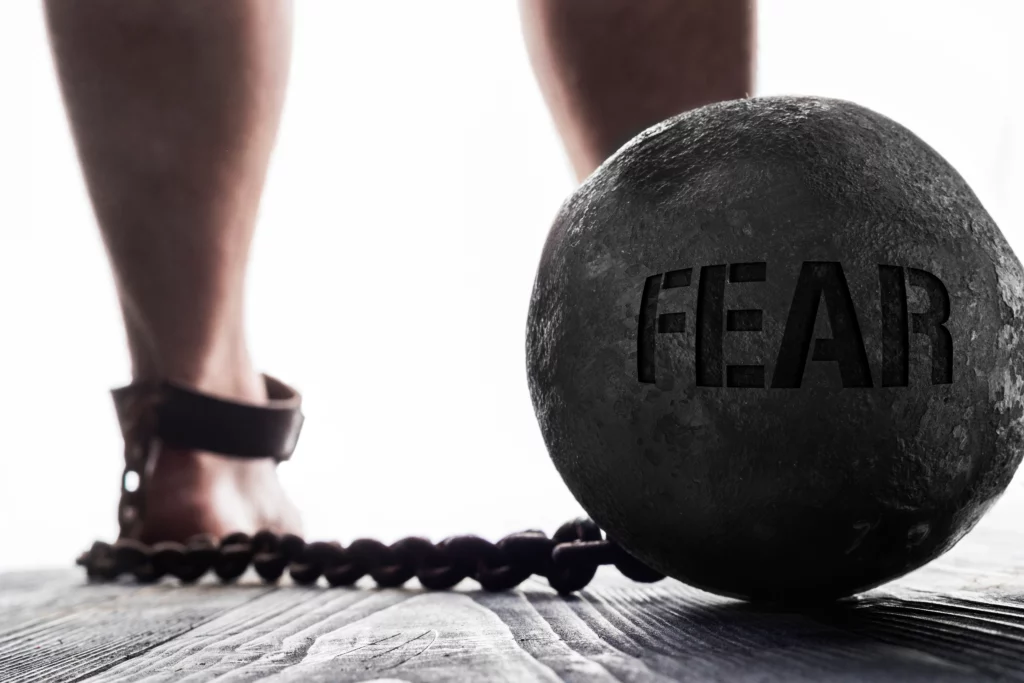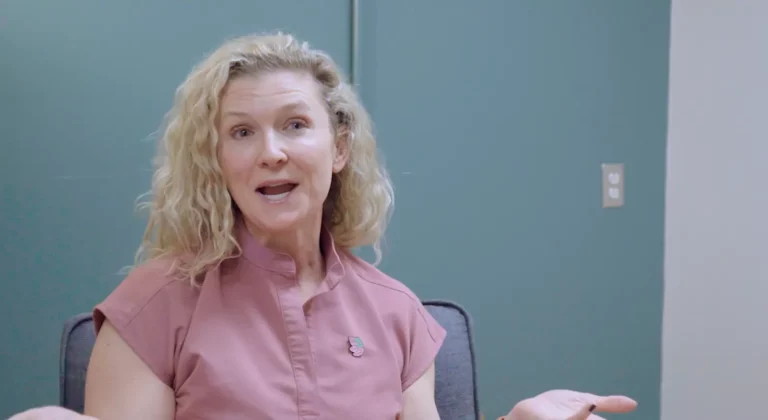Dealing with Fear in Sobriety
Fear is a normal human emotion that can protect us from immediate, dangerous situations and threats. It can also come to us in a wide variety of forms, such as worry (fear of the future), anxiety (again, the future), trepidation, concern, and dread. Underneath all of these words is fear.
Fear can trigger our fight or flight response, and for many struggling with addiction, the flight was to the drink or drug. Fear can be a major liability and a common reason why we turned to our substance of choice. We just didn’t have the coping skills needed to effectively deal with fear. So dealing with fear in sobriety can be a big challenge.
What’s astounding about fear is that we can be completely gripped by the emotion, fearful of some event that hasn’t happened yet. It can absolutely paralyze us while, for example, we are sitting in a very calm, serene environment without a present danger. The problem lies entirely in our minds. That’s amazing! So the question is, “How do we deal with fear when it comes?”
Here are some helpful tips that people in recovery often use to deal with fear.
Pause And Acknowledge
The first step in dealing with fear is knowing that we’re fearful. We can pause when we feel overwhelmed or fearful and acknowledge, “OK, I’m feeling fearful or afraid.” Identifying the troubling emotion is the first step toward addressing it.
Identify The Source
Next, I can ask myself, “What am I fearful about?” or “What am I worried about?” If I can’t answer the question, I can think about what I was thinking about when the fear came. We need to identify the source of the emotion. Once we identify the source, we can take steps to address it.

Take Action or Accept
Once we identify the source, we can ask ourselves this question, “What can I do about it right now?” One tool many people in recovery find helpful in answering this question is the Serenity Prayer:
“God/Higher Power, Grant me the serenity to accept the things I can not change, the courage to change the things I can, and the wisdom to know the difference.”
The Serenity Prayer puts us right where we are – in the present moment. If there’s something I’m afraid of right now, maybe I can take positive steps now to address it (courage to change). By taking action, I can eliminate the fear associated with the issue and find a resolution.
In other cases, acceptance will have to suffice. For example, maybe I’m fearful of meeting my partner’s aunt and uncle, who I’ve never met before. The plan is to have dinner with them next week. They know I’m in recovery, and I’m worried about what they will think of me.
In this scenario, I can first recognize my fear. Second, I can then identify the source, which is “what they will think of me” (fear of rejection).
If I ask myself, “What can I do about this situation?” I realize that:
- I can accept that I can’t do anything about the situation right now. I have to “let it go” and focus on what’s in front of me.
- When we go to dinner, I will be powerless over what my partner’s aunt and uncle think of me. I can’t control other people. I can accept my powerlessness and accept my partner’s family members for who they are. (Over time, in recovery, we become less and less worried (fearful) about what other people think of us.) The only thing I will have control of during the dinner is me and my actions. That’s all I’m responsible for. So, I will go to dinner with the family members and just do the best I can. I can try to relax, have fun meeting new people, and be the best sober person I can be.
Understanding what I can control and what I can’t is important in addressing my fears. As this scenario shows, fears are very often tied to future events. Fear is often centered around either 1) I will have something taken away from me or 2) I will fail to get something I want.
Our minds are hard-wired to consider worst-case scenarios. It’s a result of evolution. Recognizing this can help us address what some people call “future-tripping” or “living in the wreckage of the future.” It can be helpful to remember that the worst-case scenario usually never happens. One way or another, everything works out.

Carl A’s Experience
Carl A. lives in the Southeastern U.S. and has been sober for over 30 years. He shares his experience in dealing with fear:
“For me, fear starts out stark and real, but then I soon realize it’s just a lack of faith. I fear it won’t work out this time, or I won’t be able to live with the result. But after 31+ years, I can always pause and look back—back to dozens of examples in my life where my Higher Power worked out the issue with the least possible pain. I now know that when confronted with a fear, ‘this too shall pass’ no matter what it is.”
Be Where Our Feet Are
One antidote to fear is remaining in the present moment. We can look around us and realize that “OK, right now I am safe, and life is ok.” I can ask myself, “What problem do I have right now?”
Additionally, I can tell myself, “Right now, I am in my house, warm, safe and sober.” Or, “Next week, there’s this issue I will need to address, but right now, I can relax and enjoy life.” As we grow in sobriety, we can improve this skill and live more in the present moment, where we’re usually in a safe place. Right now is a gift, and that’s why it’s called the “present.”
For many people in recovery, like Carl A., having faith in a Higher Power helps with their fears. The idea is that we do the footwork in life and leave the results up to the Higher Power. We can control our part, but we often can’t control the outcome. Many folks find it comforting and even life-changing in turning their lives over to the care of a Higher Power (the 3rd Step in the 12 Steps of Alcoholic Anonymous and Narcotics Anonymous). Many people in recovery find prayer to be helpful and comforting when they are disturbed. Talking to an AA or NA sponsor can also help us when we are troubled.
These are just a handful of methods that people in recovery have used to tackle their fears. This list is by no means exhaustive. You may find these practices helpful and even uncover additional tips for addressing an age-old bogeyman for those addicted – fear.
I’d love to hear what you do to address your fears. Send me an email at [email protected].
Are You Covered For Treatment?
Oasis Recovery Center partners with numerous private insurance providers. Our team is committed to assisting you in quickly and effortlessly verifying your insurance coverage for treatment.








